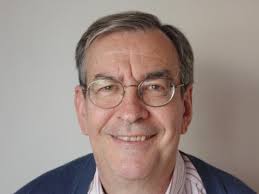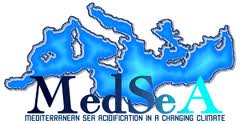 Endoscopic treatment of gastroesophageal reflux
Endoscopic treatment of gastroesophageal reflux
Endoscopic treatment of obesity
http://www.saescomedical.com/?lc=en

In 2010 the French collector Philippe Méaille deposited at MACBA his private collection of works by Art & Language: more than 500 pieces of very different types – paintings, drawings, sculptures, installations, documents, writings, typescripts, annotations, microfilms, maquettes and publications- leading us to reconsider the role of writing in the practice of art.
After four years of study, documentation and restoration, the Museum presents the exhibition Art & language Uncompleted, The Philippe Méaille Collection, which brings together an exceptional selection of works by this collective, many of which will be on exhibition for the first time.
The conversational, discursive and essayistic form that characterizes the production of Art & Language, unbroken to this day, is now continued through the participation of Michael Baldwin andMel Ramsden, and it’s been a pleasure to meet them again four years later!
Opening: Today, 18th of September, at 8pm
Dates: 19th September 2014 -12th April 2015
Goodbye summer…
Left behind us are the flower carpets of Corpus that you made your entry on, going out in canoes, evenings with the cousins, the arrival of Luna, our cat, the Greek suppers dressed up in white, the fireworks and the magic on St John’s day, the performances of the Colla Jove, human tower builders, of Sitges, evenings spent surfing at the club, tea with the cousins, the procession of Our Lady of Carmen, the coves of Begur, late afternoons with grandpa and grandma in Sitges, the hours with granny, sailing with Las Sirenas, choosing the beauty queen of the Colla Jove of Sitges, spells with friends in the garden, days in the Cerdanya, the end of summer festival, barbecues with our friends…
Goodbye summer… come back soon! There’s so much to celebrate with you!
Iniciamos temporada, después de un largo período de descanso estival, con el IV Congreso Internacional de Historia y Cine: Memoria histórica y cine documental, organizado por la Facultad de Geografía e Historia de Barcelona y por el Centre d’Investigacions Film-Història.
Si bien es cierto que el pasado está vinculado a una facultad individual que puede alterarse e incluso desaparecer al mismo tiempo que lo hacen sus protagonistas, no es menos cierto que el registro fílmico puede tener una vida eterna, porque las películas, sean estas documentales o de ficción, avivan y recuperan la memoria para constituir un poderosos relato que configura a su vez nuestra visión del pasado.
Es en esos caminos e intersecciones, por los que transitan las diferentes imágenes, voces y textos que podemos entender la historia que nos precede.
Interesantísima, entre otras, la ponencia del Sr. Magí Crusells, “Franco, protagonista del NO-DO?” y anticipamos ya un excelente resumen del congreso con la Conferencia de clausura “Història, Testimoni, Relat i Implicació: la problemática en la representació de la memoria col.lecitva”, a cargo de Maria Dolors Genovès.
Para saber más: http://www.ub.edu/congresocine/
Peter Singer, invited by the Grífols Foundation, has come to Barcelona to talk to us about the Effective Altruism Movement. A philosophy and social movement which applies evidence and reason to working out the most effective ways to improve the world. Not only helping, but helping others in the most effective way.
Henry Spira defines it best when he says: “I guess basically one wants to feel that one’s life has amounted to more than just consuming products and generating garbage. One likes to look back and think that one’s done the best one can to make this a better place for others. It’s not a sense of duty, but rather tis is what I want to do. I feel best when I am doing it well.
See also www.givinggladly.com and www.givingwhatwecan.com
 Con estas palabras describía uno de los hijos de Javier a su padre hoy en su funeral. Un discurso sencillo, emotivo, cercano. Sorprendentemente maduro para un chaval de apenas 17 años. Sailesh, sin dejar ni un segundo la sonrisa que le caracteriza, ha narrado con una serenidad casi inexplicable el recuerdo imborrable que deja en él su padre.
Con estas palabras describía uno de los hijos de Javier a su padre hoy en su funeral. Un discurso sencillo, emotivo, cercano. Sorprendentemente maduro para un chaval de apenas 17 años. Sailesh, sin dejar ni un segundo la sonrisa que le caracteriza, ha narrado con una serenidad casi inexplicable el recuerdo imborrable que deja en él su padre.
Lo confuso y triste que se siente porque su padre no verá crecer a sus hijos, porque no verá cómo son capaces de alzar el vuelo del nido, y vivir una vida independiente. Sailesh nos ha hecho revivir a Javier con su pose, su voz profunda, sus palabras claras y directas. Cuando le he dicho lo mucho que se parece a su padre me ha dicho “es que yo siempre he querido parecerme a él, yo quiero ser como mi padre”.
Nos ha dejado uno de los primeros intérpretes que conocí cuando inicié mi andadura profesional. Una persona a la que jamás vi alterarse por nada y que destacaba por su sonrisa y afabilidad. El intérprete más polivalente, casi podríamos decir, a cualquier idioma, de cualquier idioma, nada le asustaba, parecía que hubiera vivido más vidas que todos nosotros juntos. Y sin embargo jamás le oí hacer alarde de nada. Y eso que, como ha explicado su hermana, su sed de aprender le llevó hasta las mismísimas Antípodas.
Me decía una intérprete, al despedirnos, que Javier vivió con una intensidad serena. Yo diría además que vivió con una serenidad intensa, combinación a veces difícil de encontrar.
Descansa, Javier. Intentaré seguir todos y cada uno de tus consejos. Me uno al deseo de tu familia, que tengas un feliz último viaje. Vete tranquilo, Javier, tu labor de padre ya ha empezado a dar fruto.
 The sea is where all life on planet Earth began.
The sea is where all life on planet Earth began.
There was a time when the oceans were considered so vast and inexhaustible taht man would never be able to affect them.
But years of overfishing, pollution and hábitat destruction have forever changed that image.
And now, we are even altering the very chemistry of the sea…
150% increase in the acidification in our seas and oceans by the year 2100!
The European Mediterranean Sea Acidification in a changing climate (MedSeA) initiative is a project funded by the European Commission under Framework Program 7. It involves 22 institutions (including 6 associated partners) from 12 countries.
MedSeA assesses uncertainties, risks and thresholds related to Mediterranean acidification at organismal, ecosystem and economical scales. It also emphasizes conveying the acquired scientific knowledge to a wider audience of reference users, while suggesting policy measures for adaptation and mitigation that will vary from one region to another.
When I was requested to inaugurate and close the 4th Congress on the Maritime History of the Mediterranean Network, I felt like one of the luckiest women on the planet. A congress in one of my favourite museums? The Maritime Museum of Barcelona? This museum housed, among other temporary exhibitions, one that was dedicated to the sailing Patin, with photographs that closely followed the history of the Catalan Patin from its origins till its most evolved form today. Characteristically, it has neither rudder nor board, those indispensable elements for sailing. Its features make it ideal for plying coastlines.
The congress looked at sailing from another point of view, that of the “big vessels”. We listened to Carlos Martínez Shaw, who with “A Complete History of the Sea and its Shores” delighted the audience in the opening speech with a review of this “Our Sea Mare Nostrum”, giving us the keys to understanding the growth of trade and navigation through time. Truly a pleasure.
Tomás Molina is more than just the most famous weather man in our country. He has a degree in Physics from the University of Barcelona. He is the head of the weather forecasters of channel TV3, senior meteorologist of the SAM (Audio visual Meteorological Services), and presenter of “The Weather” in TV3, 3/24 and La Nit al Dia.
Well versed as well as active disseminator in issues related to climate change and environmental risks, he holds, among others, the post of interim chairman of the Climate Broadcasters Network of Europe.
Over the years he has participated in the Environmental Conferences organised by the University of Barcelona and Bodegas Torres. Today we assessed the chemical state and the quantity of subterranean water in Catalonia, technologies related to the management of slurry and finding a use for water from polluted aquifers. It was a pleasure to hear his dynamic presentation once more.
And thank you Tomás for offering to take a photograph with me to promote my blog!